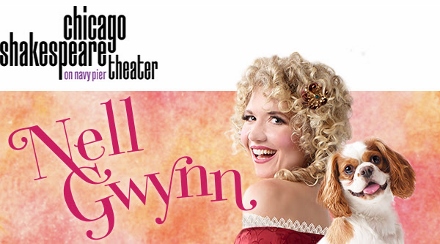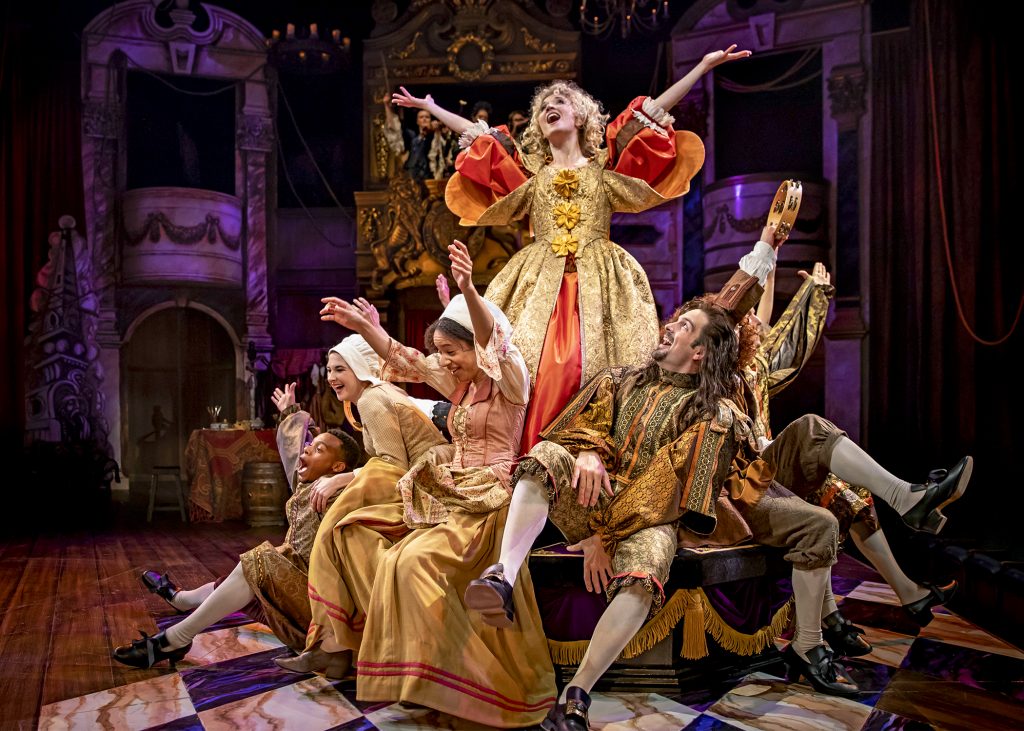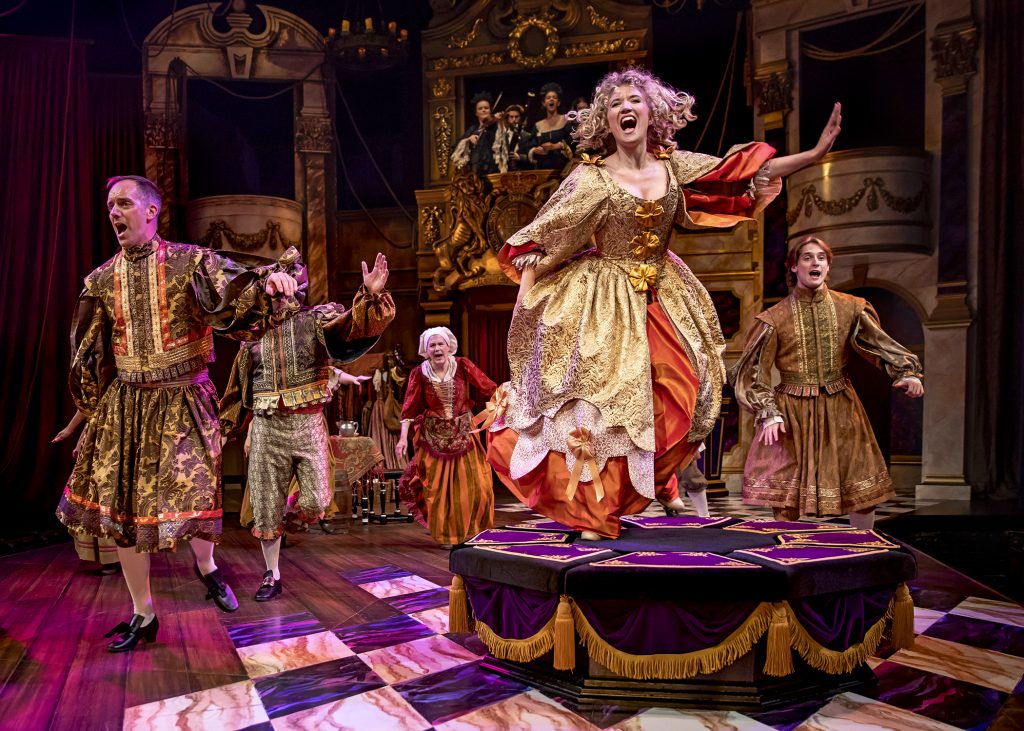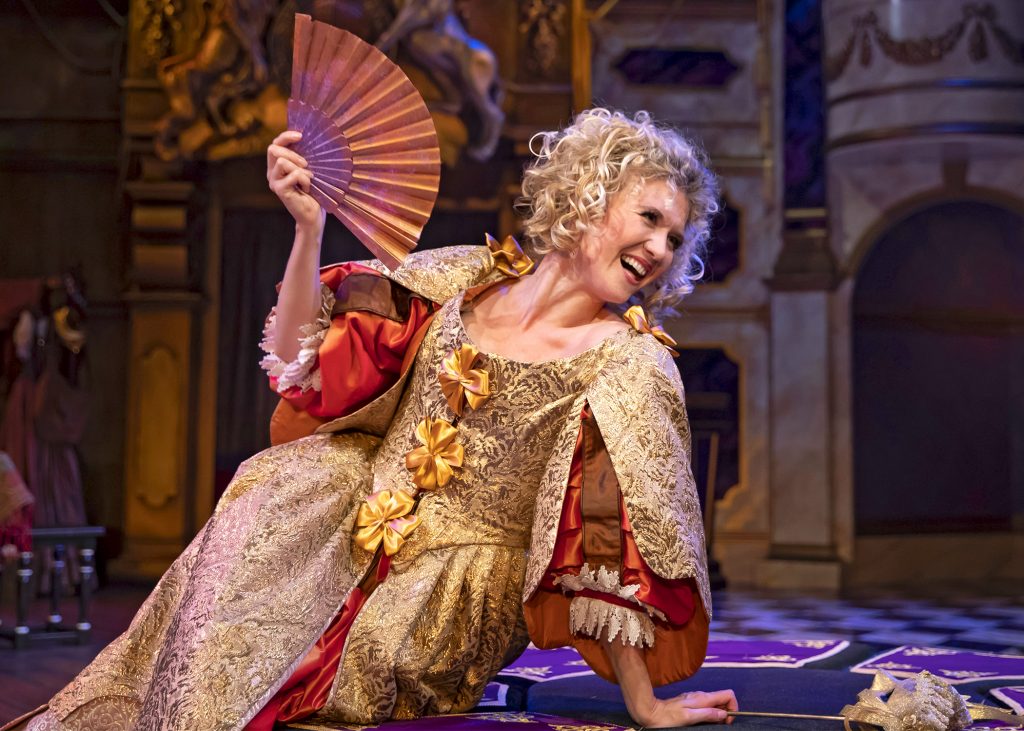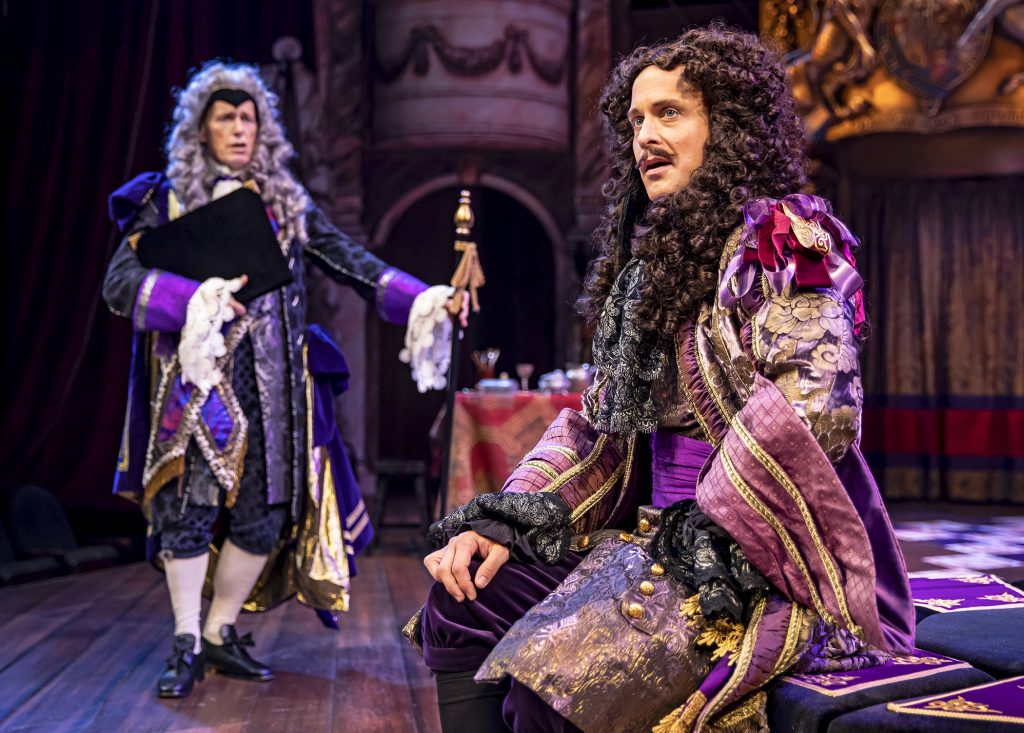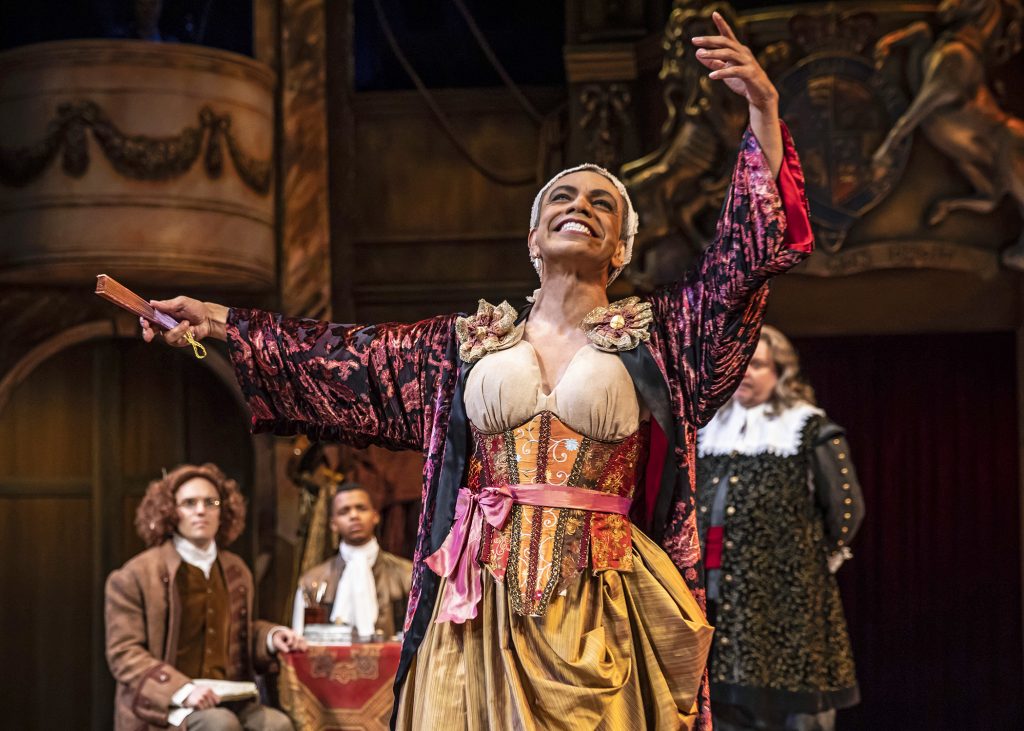THE BELLE OF COAL YARD ALLEY
LEAVES YOU GWYNNING FROM EAR TO EAR
When you’re mistress to a monarch, your perch is precarious. Envy supplants praise as, moving from “rags to royalty,” your origin pursues you through slander and shaming. Lacking the protection of marriage, seldom measured by your merit (just your maneuvers), the royal concubine walks a treacherous minefield, particularly if, as one of the first actresses in the ever-scandalous world of theater, she’s already a perfect target.
Diarist Samuel Pepys rightly called her “pretty, witty Nell.” She called herself the “Protestant whore,” as if religion matters in a harem. A sensation who rose from selling oranges in Coal Yard Alley to a mansion in Pall Mall and a stipend of 500 pounds a year, Nell Gwynn recounts the unashamed success story of a possibly illiterate but proudly-proclaiming prostitute, a once-and-future free spirit who rampaged and rollicked through the Restoration.
Chicago Shakespeare Theater’s wondrous North American premiere of Jessica Swale’s Olivier Award-winning 2015 comedy is a five-star frolic. The most famous of the many mistresses of rakish King Charles II, naughty Nellie was a master of make-believe, first for seven seasons as a featured comedienne (sometimes in trouser roles) in the now gender-balanced plays by John Dryden at the Drury Lane Theater, then as an artful self-promoter in the court at Whitehall.
Ironically, she proved most authentic as a 17th-century good-time geisha: As Swale’s ebullient extravaganza suggests, despite their disparities, over the course of almost two decades a mutual respect, then love, leveled their differences and confirmed their choices. Before this merry prankster died of syphilis at only 37, Nell learned that she didn’t always need to play a part, while the king discovered just how much he did play one, except, happily, when Nellie’s plain-speaking common sense (“Mind your business [and] the people of England will soon be pleased”) kept him real.
Nell inevitably recalls two seminal heroines of American musical comedy: Like Eliza Doolittle, she realizes that she is much more than her down-bringing, and, like schoolmistress Anna for her King of Siam, Nell’s forthright disdain for cant and hypocrisy teaches a ruler to prize rather than patronize his subjects.
Charmingly staged by original West End director Christopher Luscombe, Nell Gwynn is an action portrait that’s a valentine to the theater: Along with all-revealing excerpts from Dryden’s potboilers, it teems, sometimes with anachronistic clumsiness, with showbiz in-jokes and winks to the crowd. Still it’s delightful to watch this daughter of a drunken, brothel-keeping, slatternly mother and a disappeared father learn a trade that will take her much further than the apron of a stage.
Nell may well have been a child prostitute before she went full “tits and ass” as a professional. But, discovered and adored by principal actor Charles Hart and shaped into period-perfect precision by Thomas Killigrew, manager of the King’s Company, she’s a natural in a very artificial world.
Just as supple without a script, Nell’s resourceful banter will entrance this third Stuart king of England, triggering inevitably bitchy rivalry with threatened mistresses Lady Castlemaine and the French soubrette Louise de Kerouaille. With spirited songs by Nigel Hess, magnificently mounted production numbers show how Nell could combine art and intrigue with mischievous delight.
Plus Nell’s spells stuck; On his deathbed, King Charles famously urged, “Let not poor Nellie starve,” which James II, his brother and Catholic successor, duly honored. Nell Gwynn ends poignantly with Nell’s swan-song valedictory, a self-written epilogue to the world of illusion that she transformed into so much truth. No question, this proto-feminist, a deserved pretender, struck a blow for the future that more than justifies her return to the footlights.
It’s all gorgeously encased in an elaborate Jacobean set by Hugh Durrant, which functions equally well as theater proscenium and palatial stateroom. Durrant also furnishes the eye-popping costumes.
At the center of this good-hearted romp is Scarlett Strallen’s deservedly praised Nell Gwynn, an insouciant force of nature (and art) who by evening’s end beguiles and seduces everyone in the house. As her seemingly impossible paramour, Timothy Edward Kane is a Charles II worth restoring, a marvel of double takes and entendres.
Superb support comes from Emma Ladji as Nell’s troubled and unambitious sister, Emily Gardner Xu Hall as Nell’s intriguing rivals, and John Tufts, Bret Tuomi and Christopher Sheard as her theatrical champions and enablers. Hilarity ensues whenever David Bedella appears as disgruntled female impersonator Edward Kynaston, in a constant snit over being replaced by a real woman.
Veterans with impeccable timing and mugging, Chicago favorites include wickedly funny Natalie West as Nell’s clueless and cartoony confidante, the always watchable Hollis Resnik as both her foul-mouthed mother and Charles’s termagant of a Portuguese queen, and Larry Yando as haughty Lord Arlington, Charles advisor and Nell’s nemesis (who our manipulative Nell manages to reduce to the royal dog-walker). The nine-person ensemble excel as servants, players, ladies-in-waiting — all very serviceable supernumeraries. (There are also two cameo appearances by a delightful King Charles spaniel named “Bentley,” here cynically called Oliver Cromwell.)
It all amounts to 150 minutes of enchanting exuberance, contagiously enthralling and beautiful to behold. Seldom has theater loved itself so winningly or with such cause.
photos by Liz Lauren
Nell Gwynn
Chicago Shakespeare Theater
The Jentes Family Courtyard Theater on Navy Pier, 800 E. Grand Ave.
Tues-Fri at 7:30, Sat at 3 and 8, Sun at 2
ends on November 4, 2018
for tickets, call 312.595.5600 or visit Chicago Shakes
for more shows, visit Theatre in Chicago
